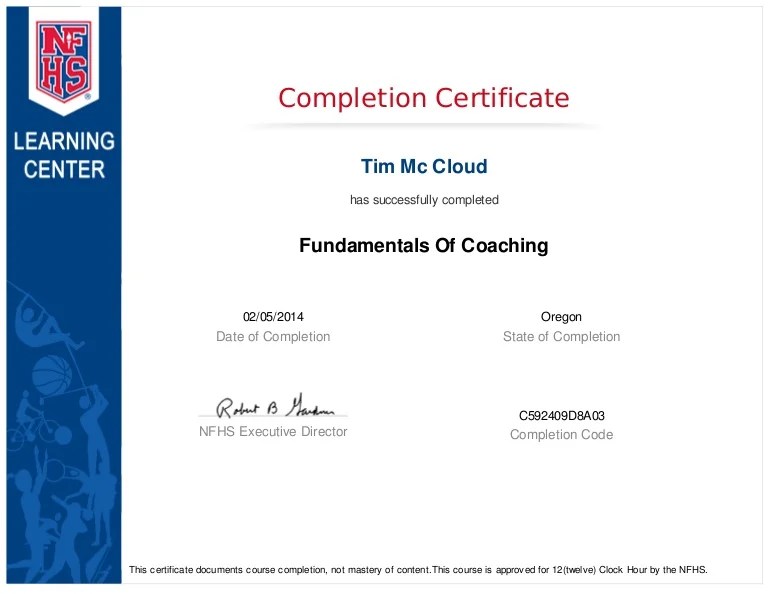Nfhs fundamentals of coaching answers – Delving into the NFHS Fundamentals of Coaching, this comprehensive guide unlocks the secrets of effective coaching practices, providing a roadmap for aspiring and seasoned coaches alike. Grounded in a deep understanding of coaching principles and concepts, this resource equips readers with the knowledge and skills to foster athlete development, build strong team dynamics, and promote a positive and safe coaching environment.
From the nuances of communication and interpersonal skills to the intricacies of skill development and technique, this guide leaves no stone unturned in exploring the multifaceted nature of coaching. It emphasizes the importance of ethical and responsible practices, highlighting the coach’s role in shaping the lives of young athletes both on and off the field.
Coaching Principles and Concepts

Effective coaching involves adhering to fundamental principles and concepts that guide coaches in creating a positive and productive environment for athletes. These principles include:
- Establishing clear goals and objectives
- Creating a positive and supportive atmosphere
- Focusing on athlete development and well-being
- Using effective communication and interpersonal skills
- Promoting ethical and responsible practices
By applying these principles, coaches can foster a coaching environment that encourages athlete growth, skill development, and a lifelong love for the sport.
Communication and Interpersonal Skills
Effective coaches possess excellent communication and interpersonal skills to connect with athletes and build strong relationships. These skills include:
- Active listening and empathy
- Clear and concise communication
- Establishing trust and rapport
- Resolving conflicts constructively
- Providing constructive feedback
By developing these skills, coaches can create a positive and open environment where athletes feel comfortable asking questions, sharing concerns, and receiving guidance.
Planning and Organization
Effective coaching requires meticulous planning and organization to ensure that athletes receive the necessary training and support. This involves:
- Setting clear goals and objectives
- Creating lesson plans and practice schedules
- Managing practice time effectively
- Evaluating coaching effectiveness
- Making adjustments as needed
By planning and organizing effectively, coaches can maximize practice time, optimize athlete development, and track progress towards goals.
Skill Development and Technique
Developing athletic skills and techniques is a core component of coaching. This involves:
- Understanding the principles of motor learning
- Creating drills and exercises to improve skills
- Providing constructive feedback
- Encouraging practice and repetition
By focusing on skill development and technique, coaches can help athletes enhance their physical abilities, improve their performance, and reach their full potential.
Safety and Injury Prevention, Nfhs fundamentals of coaching answers
Ensuring athlete safety is paramount in coaching. This involves:
- Creating a safe practice environment
- Identifying and mitigating potential risks
- Preventing injuries through proper warm-ups and cool-downs
- Recognizing and responding to injuries promptly
- Following emergency procedures
By prioritizing safety, coaches can create a protective environment that safeguards athletes from harm.
Leadership and Motivation
Effective coaches are strong leaders who motivate athletes to achieve their goals. This involves:
- Setting a positive example
- Inspiring and motivating athletes
- Creating a team environment
- Recognizing and rewarding effort
- Building self-confidence
By demonstrating strong leadership and motivation, coaches can foster a positive and supportive team culture that encourages athletes to excel.
Quick FAQs: Nfhs Fundamentals Of Coaching Answers
What are the key principles of effective coaching?
Effective coaching is grounded in principles such as positive reinforcement, clear communication, setting realistic goals, fostering a supportive environment, and valuing athlete well-being.
How can coaches build rapport with athletes?
Building rapport involves active listening, empathy, showing genuine interest in athletes’ lives, and creating a safe and inclusive environment where they feel valued and respected.
What are some strategies for resolving conflicts within a team?
Conflict resolution in a team setting requires effective communication, mediation, identifying underlying causes, setting clear boundaries, and promoting open and honest dialogue.
How can coaches promote skill development in athletes?
Skill development is facilitated through repetition, feedback, error analysis, breaking down complex skills into smaller components, and providing opportunities for athletes to practice in a variety of situations.
What are the responsibilities of coaches in ensuring athlete safety?
Coaches have a duty to prioritize athlete safety by conducting thorough risk assessments, enforcing safety protocols, providing proper equipment, and having emergency procedures in place.

